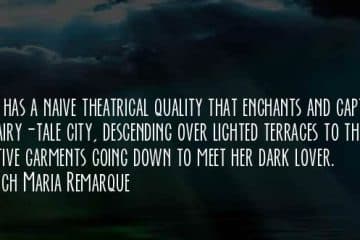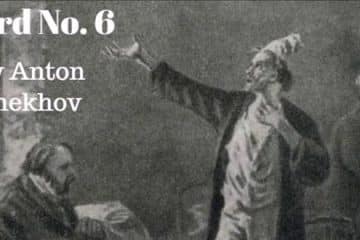Article menu:
- Choose the good part
- Throw a stone (at someone)
- The letter kills, but the spirit gives life
- Babel
- All who take the sword will die by the sword
- Into fire and water
- Back to square one
- Lots of wisdom, lots of sadness
- House built on sand
- lost sheep
- Bury talent in the ground
- Leave no stone unturned
- Who among you is without sin, let him be the first to throw a stone at her.
- Who does not work shall not eat
- Manna from heaven
- Last pearls before swine
- To contribute
- doubting Thomas
- Biblical phraseological units – a storehouse of wisdom
Bible! The most important book on earth! God’s letter to sinful man! The only authoritative source that provides knowledge about the Great Creator and Savior of people, as well as practical advice on how to repent and lead a life pleasing to the Lord! Unfortunately, not many perceive it in this way, but even if you look from a human point of view, you can see in the Bible a great monument of literature, a chronicle of history. Its ancient Greek and Hebrew text was known to distant ancestors, but a Russian translation has come down to us. Historians and literary figures, studying the Bible, pay attention to stable combinations, which can also be called phraseological units and which are often used in everyday speech.
There are a lot of them, and some phrases that later became winged even sounded from the lips of Jesus Christ Himself! We give examples of such expressions in this article.

Choose the good part
This phrase was said by Jesus Christ, denouncing Martha, condemning her sister for not helping her in preparing a meal for the guests. In the original, it sounds like this: “… He came to one village. Here a woman named Martha received Him into her house; she had a sister named Mary, who sat at the feet of Jesus and listened to His word.
Martha, however, was taking care of a large treat and, coming up, said: “Tell her to help me.”
Jesus answered and said to her: “You worry and fuss about many things, but only one thing is needed; Mary chose the good part, which will not be taken away from her” (Luke 10:38-42).
Now the expression “to choose the good part” means to choose the best for yourself.
Throw a stone (at someone)
People use this phrase in the sense of blaming, denigrating, condemning someone. But, probably, not everyone knows that initially Jesus Christ uttered these words to the scribes and Pharisees, when they brought to him a woman taken in adultery, that is, a harlot whom they wanted to stone to stone. He stood up and said to them:
“He that is without sin among you, let him first cast a stone at her” (John 8:7).
The letter kills, but the spirit gives life
Now, basically, this quote, which the Apostle Paul wrote in the letter to the Corinthians, is used in the sense of the formal and creative side of any occupation. But Paul had something completely different in mind, and in the original this phrase sounds like this:
“God has given us the capacity to be ministers of the New Testament, not of the letter, but of the spirit; for the letter kills, but the spirit gives life” (2 Corinthians 3:6).
The apostle urged newly converted Christians to live according to the spirit, the fruit of which is love, joy, peace, longsuffering, faith, meekness, temperance. And the Lord gives this ability to believers.
Babel
Of course, this phraseological unit is used in the meaning of “confusion, turmoil, noise.” In Slavic, the word “pandemonium” means the creation of a tower or pillar. However, its roots are from the distant past of people who imagined that they could reach the sky by making a high tower.
“And the Lord said: “This is one people, and all have one language, and this is what they began to do, and they will not lag behind what they planned to do; let us confuse their language there, so that one does not understand the speech of the other” (Gen. 11:1-9).
All who take the sword will die by the sword
In our time, this phrase is used in the sense that you can’t think bad things about another, otherwise you yourself can become a victim. However, these words were uttered by Jesus Christ, turning to His disciple Peter, who, defending the Teacher, took a sword and cut off the ear of the servant of the high priest. “And while He was still speaking, behold, Judas, one of the Twelve, came, and with him a multitude of people with swords and clubs, from the chief priests and the elders of the people.
And the one who betrayed him gave them a sign, saying: Whom I kiss, he is, take him. And immediately coming up to Jesus, he said: Rejoice, Rabbi! And kissed him. Jesus said to him, Friend, why have you come? Then they came and laid hands on Jesus, and took Him. And behold, one of those who were with Jesus, stretching out his hand, drew his sword, and striking the servant of the high priest, cut off his ear.
Then Jesus said to him:
return your sword to its place, for all who take the sword will perish by the sword (Gospel of Matthew 26:47-52).
This phrase is also repeated in the Revelation of John the Theologian:
“…He who kills with the sword must be killed with the sword (Revelation 13:10).
Into fire and water
The expression means the willingness to take selfless actions for the sake of another person without hesitation, sacrificing oneself.
However, the New Testament describes a real case when one person asked Jesus Christ: “Lord! Have mercy on my son; he rages in the full moon and suffers greatly, for he often throws himself into the fire and often into the water ”(Gospel of Matthew 17:15).
In addition, God himself addresses a faithful person with these words:
“If you cross waters, I am with you; if you cross rivers, they will not drown you; if you go through fire, you will not be burned, and the flames will not burn you” (Isaiah 43:2).
Back to square one
The expression is taken from the Bible, the book of Ecclesiastes, and means to return to the previous state. It was first used by King Solomon, who wrote this book under God’s guidance:
“The wind goes to the south, and goes to the north, whirling, whirling in its course, and the wind returns to its circles” (Ecclesiastes 1, 7).
Lots of wisdom, lots of sadness
The wiser a person, the more knowledge he has, the more acutely he realizes the imperfection of this world. This is how people understand this expression, but not everyone knows that King Solomon was the first to utter it:
“And I gave my heart to know wisdom, and to know foolishness and foolishness; And I knew that this is vexation of the spirit, because in much wisdom there is much sorrow, and whoever increases knowledge, increases sorrow” (Ecclesiastes 1:17-18).
House built on sand
This expression is used when talking about something fragile, without foundation. And it takes its origins from the Bible, when Jesus Christ, teaching people, said the following words:
“But everyone who hears My words and does not do them is like a foolish man who built his house on the sand, and it rained, and the rivers flooded, and the winds blew and attacked that house, and it fell, and its fall was great. “(Matthew 7:26-27).
lost sheep
So now they say about a person who has strayed from the true path. However, this popular expression originates in the parable of Jesus Christ about the lost sheep.
“The Son of Man came to seek and save the lost.

If someone had a hundred sheep and one of them went astray, would he not leave ninety-nine in the mountains and go looking for the lost one? (Matthew 18:12).
Bury talent in the ground
In our time, they say this about a person who does not care about the development of a natural gift (talent). But in the time of Jesus Christ, an ancient Roman cash coin of great denomination was called talent. Here is what is said in the Gospel parable told to the disciples by Jesus Christ:
“For He will act like a man who, going to a foreign country, called his servants and entrusted them with his possessions: and to one he gave five talents, to another two, to another one, each according to his strength; and immediately set off.
The one who received the five talents went and put them to work and acquired another five talents; in the same way, he who received two talents acquired the other two; He who received one talent went and buried it in the ground and hid his master’s money” (Gospel of Matthew 25:14-18).
The slave who buried his talent in the ground was punished, the rest were rewarded.
Leave no stone unturned
This expression means “destroy, destroy to the ground.” But believers who carefully study history know that Jesus Christ foretold the destruction of the Jerusalem temple:
“Jesus said to them: “Do you see all this? Truly I say to you, there will not be stone upon stone here, everything will be destroyed” (Matthew 24:2).
Who among you is without sin, let him be the first to throw a stone at her.
Now we are talking about those who exaggerately denounce other people’s sins and vices. However, Jesus Christ originally uttered this phrase in response to a question from the scribes and Pharisees, when a woman caught in fornication was brought to him. “Jesus went to the Mount of Olives. And in the morning he again came to the temple, and all the people went to Him.

He sat down and taught them. Then the scribes and Pharisees brought to him a woman taken in adultery, and placing her in the middle, they said to him: Master! this woman is taken in adultery; but Moses commanded us in the law to stone such men: What sayest thou? They said this, tempting Him, in order to find something to accuse Him. But Jesus, bending low, wrote with his finger on the ground, paying no attention to them. When they continued to ask Him, He raised himself up and said to them, He who is without sin among you, let him first throw a stone at her. And again, bending low, he wrote on the ground. But they, having heard this, and being convicted by their conscience, began to leave one by one, beginning from the elders to the last; and Jesus alone was left, and the woman standing in the midst. Jesus, rising up and not seeing anyone but a woman, said to her: Woman! where are your accusers? nobody judged you? She answered: no one, Lord.
Jesus said to her: Nor do I condemn you; go and sin no more” (John 8:1-11).
Who does not work shall not eat
This expression does not originate in the works of Lenin, as was commonly believed in Soviet times, but comes from the Bible, the New Testament, and the Apostle Paul said it, referring to the Thessalonians:
“For when we were with you, we commanded you this: “If anyone does not want to work, neither shall he eat” (2 Thessalonians 3:10).
Manna from heaven
Something urgently needed, rare, desired. This is the real food given by God to the Israelites during their forty years of wandering in the wilderness. This is how it is described in the Bible: “… And behold, on the surface [of the earth] of the desert, something small, grainy, like frost on the ground. And the children of Israel saw and said to one another, “What is this?” And Moses said to them:
“This is the bread that the Lord has given you to eat.” And he called the name of the house of Israel, bread: manna” (Exodus 16:14-16, 31).
Cast pearls before swine
The origin of phraseology is biblical, and it sounded from the lips of Jesus Christ in the Sermon on the Mount:
“Do not give anything holy to dogs, and do not cast your pearls before swine, lest they trample it under their feet and turn and tear you to pieces” (Matthew 7:6).
Phraseologism means to talk about the great and secret to those who are not able to appreciate.
To contribute
So they say about a person who took a feasible part in any business. This expression is taken from the Gospel, which tells of a poor widow who put only two small coins into the treasury while collecting donations. The word “coins” from the Greek language is translated as “mites”.
He sat down and taught them. Then the scribes and Pharisees brought to him a woman taken in adultery, and placing her in the middle, they said to him: Master! this woman is taken in adultery; but Moses commanded us in the law to stone such men: What sayest thou? They said this, tempting Him, in order to find something to accuse Him. But Jesus, bending low, wrote with his finger on the ground, paying no attention to them. When they continued to ask Him, He raised himself up and said to them, He who is without sin among you, let him first throw a stone at her. And again, bending low, he wrote on the ground. But they, having heard this, and being convicted by their conscience, began to leave one by one, beginning from the elders to the last; and Jesus alone was left, and the woman standing in the midst. Jesus, rising up and not seeing anyone but a woman, said to her: Woman! where are your accusers? no one judged you? She answered: no one, Lord.
Jesus said to her: Nor do I condemn you; go and sin no more” (John 8:1-11).
Who does not work shall not eat
This expression does not originate in the works of Lenin, as was commonly believed in Soviet times, but comes from the Bible, the New Testament, and the Apostle Paul said it, referring to the Thessalonians:
“For when we were with you, we commanded you this: “If anyone does not want to work, neither shall he eat” (2 Thessalonians 3:10).
Manna from heaven
Something urgently needed, rare, desired. This is the real food given by God to the Israelites during their forty years of wandering in the wilderness. This is how it is described in the Bible: “… And behold, on the surface [of the earth] of the desert, something small, grainy, like frost on the ground. And the children of Israel saw and said to one another, “What is this?” And Moses said to them:
“This is the bread that the Lord has given you to eat.” And he called the name of the house of Israel, bread: manna” (Exodus 16:14-16, 31).
Cast pearls before swine
The origin of phraseology is biblical, and it sounded from the lips of Jesus Christ in the Sermon on the Mount:
“Do not give anything holy to dogs, and do not cast your pearls before swine, lest they trample it under their feet and turn and tear you to pieces” (Matthew 7:6).
Phraseologism means to talk about the great and secret to those who are not able to appreciate.
To contribute
So they say about a person who took a feasible part in any business. This expression is taken from the Gospel, which tells of a poor widow who put only two small coins into the treasury while collecting donations. The word “coins” from the Greek language is translated as “mites”.

Despite its outward modesty, the poor widow’s donation turned out to be much more important and larger than the many rich gifts. After all, the woman gave the last thing she had, and Jesus emphasized the importance of this, turning to the people.
doubting Thomas
But this expression can be found quite often, and it sounds to a person who does not trust your actions or words. However, not everyone knows that phraseology originates from the New Testament, when Jesus Christ gently denounced his disciple Thomas, who did not believe in His bodily resurrection.
Biblical phraseological units – a storehouse of wisdom
This article provides a far from complete list of biblical phraseological units. In fact, there are many times more of them, and each, before becoming a catch phrase, was used in the Bible. By studying this Book of Books, we not only learn about the plans of God in relation to man, but also extract the seeds of real wisdom that comes from above.






Holy Bible is a revelation that brings us the light of wisdom through centuries and through eras, we had no idea how many everyday sayings were taken from there, I did not know about some of those given in this post, a very interesting analysis that caught my attention among others! I didn’t even know that ‘to contribute’ came to us from here! Thank you for the interesting and informative content!
Very, very informative content for me, because I always use all these sayings and do not even think about the deep meaning hidden in each word. For example, the saying “house on the sand” was a simple expression for me that means simple things in their essence, but how deep and sensual it appears in front of my eyes after reading this.